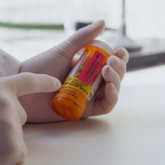Generics/Research
Anti-competitive strategic patenting by pharmaceutical companies
Drug prices have considerably increased in recent years, affecting healthcare budgets and posing a serious risk to the affordability and accessibility of medicines for society [1]. Various reasons for high drug prices are put forward by pharmaceutical companies, including the complexity of drug discovery and development, as well as the expensive and lengthy regulatory procedures involved [2]. While these reasons may play an important role in this regard, some practices by pharmaceutical companies substantially contribute to this problem.
Perspectives of prescribing practices in public health facilities in Eswatini
Rational medicines use (RMU) is the prescribing/dispensing of good quality medicines to meet individual patient’s clinical needs. Policymakers, managers and frontline providers play critical roles in safeguarding medicine usage thus ensuring their rational use. Therefore, in order to investigate this, researchers carried out a study investigating the perspectives of key health system actors on prescribing practices and factors influencing these in Eswatini [1]. Public sector healthcare service delivery in the region is carried out through health facilities (public sector, not-for-profit faith-based, industrial) and community-based care.
Familiarity with substitution of prescription generics increases positive attitudes toward OTC generics
Introduction of measures to stimulate increased sale of generics swept over the Nordic countries in the 2000s. In Sweden, in 2002, generics substitution for reimbursed prescription drugs was made mandatory and the switching rates rose over the years to reach almost 100%. Although generics policies seem to be reserved for the prescription drug market [1], a contagion effect has been observed in the market for over-the-counter (OTC) drugs. Soon after the Swedish state monopoly on the sale of pharmaceutical products was terminated and new measures to boost sales of generic prescriptions was put in place in 2009, new generic brands of the top-selling OTC analgesics emerged on the market, all with a lower price compared with previously established brands [2]. Since OTC drugs are usually excluded from pharmaceutical benefit schemes, it is reasonable to expect a demand for cheaper brands when such options exist. Albeit, time has shown that the original brands often hold their position as OTC market leaders.
Cost savings after switching to generic tacrolimus
The use of narrow therapeutic index generic immunosuppressant in solid organ transplantation is controversial. This is because drugs with a narrow therapeutic index, such as immunosupressants, are defined by a narrow distance between the dosage that induces a desired effect and that dosage which already has a toxic effect [1]. This has led to medical and scientific societies being reluctant to switch to generics of these types of drugs because they think that small pharmacokinetic differences could predispose episodes of acute rejection or of adverse effects derived from toxicities of the product [2, 3].
Equivalent adherence with brand and generic osteoporosis treatments
Osteoporosis patients are just as likely to adhere to a generic bisphosphonate treatment as they are to a brand-name product, reveals a new study published in Scientific Reports [1].
Pharmacokinetics and generic drug switching: a regulators view
Researchers from the Netherlands share their view on the pharmacokinetic aspects of generic drug switching, from a regulatory perspective. They argue that there is no reason to change the current average bioequivalence-based approval pathway for generics [1].
Medicare Part D favours generics over brand-name drugs
A recent assessment of Medicare Part D [1] finds that insurance plans favour generic drugs over innovator products. Fewer than 1% of plans covered only the brand-name version of a drug in 2019.
Out-of-pocket spending caps cut patient spending by a third
Out-of-pocket spending caps on specialty drugs in the US have reduced spending by 32% for some patients, finds a new study of almost 30,000 specialty drug users [1].
Evaluating reasons for US low generics substitution rates
The uptake of generic drug products in the US has not met expectations despite their widespread availability and relatively low cost. A team of researchers based at Johns Hopkins University in the US, have now investigated the reasons for generics utilization and substitution across therapeutic classes. They reveal marked variation in reasons, with women less likely to substitute for generics, those using mail order pharmacies less likely to substitute, and state specific laws having little influence.
Generics substitution in Finland: a pharmacy dispenser perspective
In Finland, mandatory generic drug substitution was adopted in 2003 [1]. This is overseen by pharmaceutical staff who give advice to patients and decide which drug products they should receive. A recent study by Ranio et al. assessed the content of patient counselling about interchangeable medicines and generics substitution in Finnish community pharmacies [2].













